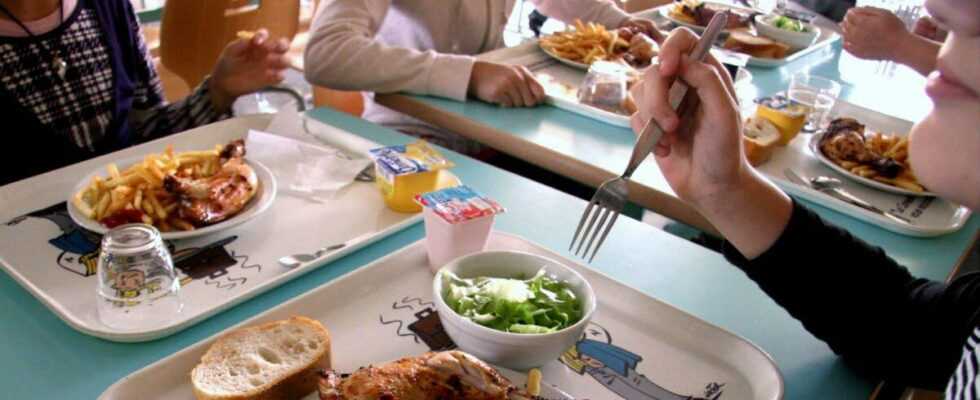Since 2002 and the mad cow health crisis, it has been compulsory to indicate the country of birth, breeding and slaughter of cattle whose meat is sold in France. From March 1, this obligation will be extended to chicken, pork, mutton and lamb meat served in out-of-home catering, according to a decree published this Thursday in the Official Journal.
School canteens, company canteens and restaurants will have to be able to tell consumers in which country the animal they are eating was raised and then killed. For this, the packaging of these meats must mention these indications. Announced for many months by the government and desired by the sectors, this labeling will also have to specify whether it is fresh, refrigerated, frozen or deep-frozen meat.
“We want to know where the meat served to our children comes from”
On Twitter, the Minister of Agriculture Julien Denormandie welcomed what he considers to be a step forward. “Because as parents, we want to know where the meat served to our children comes from. Because as consumers, we want transparency of the origin of the meat served in the catering establishments, ”he wrote on Friday evening.
For good reason: the Ministry of Agriculture explains by way of example that 50% of the meat consumed by children in school canteens comes from animals raised abroad and is therefore imported. A figure that rises to 60% when looking at chickens served in collective catering. Knowing the origin of the meat they eat outside their home was “a strong expectation of consumers”, assures the Ministry of Agriculture.
In the columns of Parisian, Laure Ducos, agriculture and food campaign manager for Greenpeace France, welcomes this measure which, according to her, “will promote local supply”. On the other hand, she points out that this does not necessarily mean that chicken, pork or lamb will be more ecological. If these animals “made in France are fed with soy imported from Latin America, which has contributed to the destruction of the forest, it makes no sense,” she notes.
“Promote local products from French farms”
This measure, which will apply in a few weeks, is very good news for French farms, according to the Minister of Agriculture, who insists in the Parisian that his “struggle is primarily that of the quality of the products served in our children’s canteens and in restaurants” and “transparency”. According to Julien Denormandie, a “large majority of imported meat is of much lower quality” and that “the nutritional intake is in no way the same whether you consume Ukrainian, Brazilian or French chicken”.
Thus, the obligation to display the origin of the animal killed to make meat will “favor the products of our territories from French farms, which are farms of excellence”, assures franceinfo Julien Denormandie.
“We have no indication of the conditions of breeding or slaughter”
“Farms of excellence”? Not in the eyes of the animal defense association L214, whose spokesperson and director Brigitte Gothière reminds our newspaper that in France, a majority of animals, eight out of ten, are kept in intensive farms by a minority of breeders. The NGO also believes that if this obligation to indicate the country of origin of the meat makes it possible to reduce imports from abroad, it is not a device guaranteeing “transparency” or even ” quality” of the meat consumed.
It is a very relative transparency since we have no indication on the conditions of breeding or slaughter (…) We will not know if these are animals from intensive breeding. It will not be known whether the animals were killed with stunning, carbon dioxide, electric shocks or piercing guns.
Brigitte Gothière, director of L214
The NGO also made a series of tweets this Thursday morning, denouncing the fact that the French origin of the meat is not always a guarantee of animal well-being.
In the eyes of the spokesperson for the NGO, the registration in the Official Journal of this decree and the comments of Julien Denormandie rather resembles “an element of communication which must respond to lobbies”. “But this does not respond to today’s emergencies: the ethical emergency vis-à-vis animals, the environmental emergency, the health emergency with zoonoses, and the social emergency of breeders. We are completely off the mark,” said Brigitte Gothière.
However, she recalls as the elections approach, “84% of French people consider the animal condition important and 67% believe that politicians do not do enough”.
